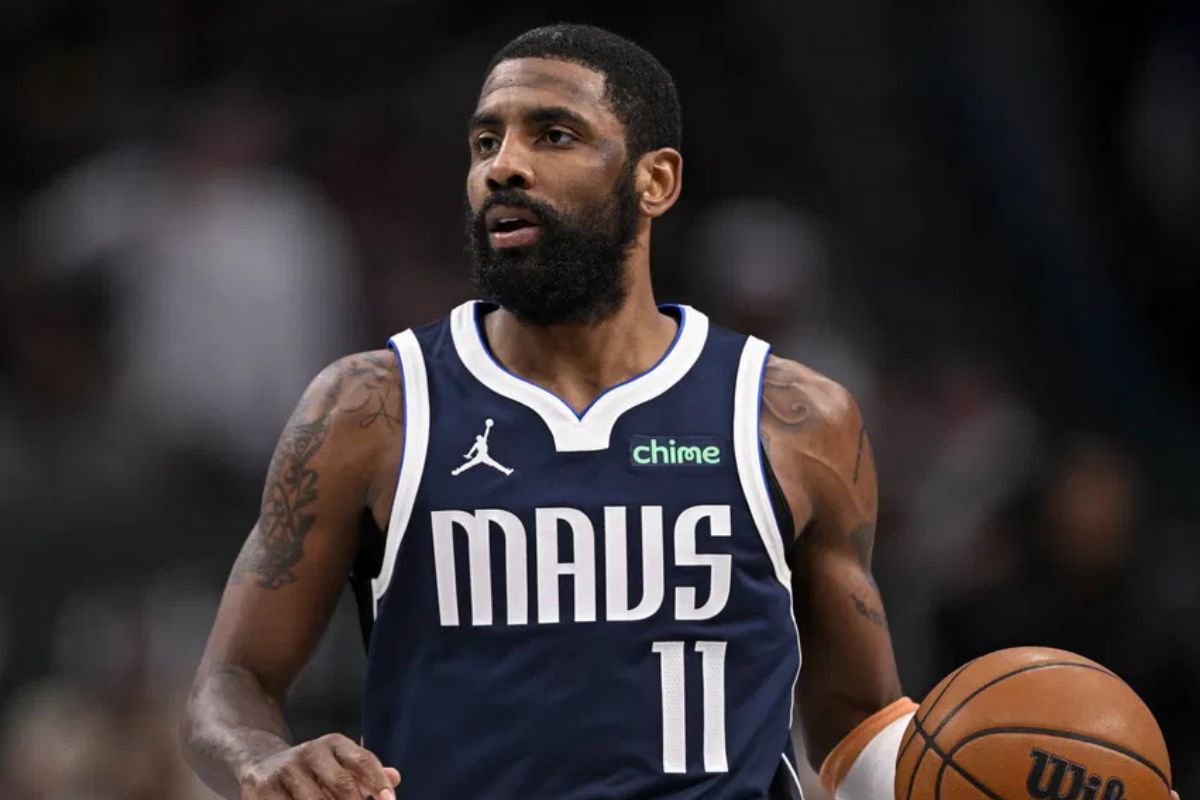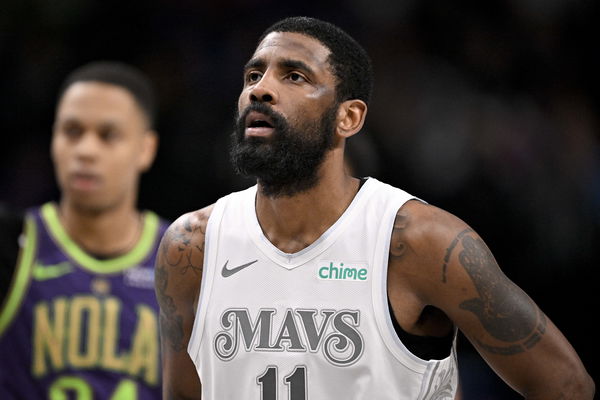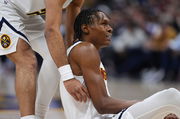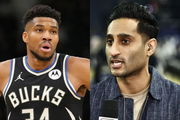
Imago
Feb 12, 2025; Dallas, Texas, USA; Dallas Mavericks guard Kyrie Irving (11) in action during the game between the Dallas Mavericks and the Golden State Warriors at the American Airlines Center. Mandatory Credit: Jerome Miron-Imagn Images

Imago
Feb 12, 2025; Dallas, Texas, USA; Dallas Mavericks guard Kyrie Irving (11) in action during the game between the Dallas Mavericks and the Golden State Warriors at the American Airlines Center. Mandatory Credit: Jerome Miron-Imagn Images
Kyrie Irving’s offseason has been anything but quiet. While other stars have focused solely on training camps and charity appearances, the Dallas Mavericks guard has been opening up to fans in a far more personal way: through his Twitch streams. Known for mixing hangouts with direct engagement, Irving has taken the opportunity this summer to share more profound reflections, offering insight into his personal struggles and growth.
Watch What’s Trending Now!
Apart from casual conversation, these sessions have offered a candid look at topics few athletes address so openly, especially outside of formal interviews. They’ve also reinforced Irving’s image as someone willing to take public conversations beyond basketball. On a recent broadcast, he revealed a personal chapter that resonated with thousands tuning in live.
Speaking to his viewers, Irving shared a vulnerable account of how early exposure to harsh realities shaped his worldview. “Dealing with childhood trauma and having trust issues or building your trust, guys, it is so important that what you see when you’re younger that you don’t normalize or become desensitized to it,” he said.
ADVERTISEMENT
He added, “I’ve seen so many things as a kid that I normalized that were not normal… The first time I saw someone addicted to drugs on the street, it scares the s–t out of me. By the time I was 12 or 13, I got used to seeing people like that. Growing up in New York and New Jersey, I saw the struggle, I saw the projects, I saw the trenches. I became desensitized to it.”

Imago
Feb 21, 2025; Dallas, Texas, USA; Dallas Mavericks guard Kyrie Irving (11) looks on during the second half against the New Orleans Pelicans at the American Airlines Center. Mandatory Credit: Jerome Miron-Imagn Images
Irving explained that this kind of repeated exposure, especially at a young age, leaves lasting scars that the mind struggles to process. It’s a reality familiar to many young people in underserved communities, and one that he feels requires serious attention. He acknowledged that his healing journey is ongoing: “I still have to heal beyond some of those traumatic moments in my life because I still grieve them. I didn’t have the perfect childhood… so I had some things going on that I needed to get professional help for, and I suggest anybody at home that needs professional therapy or professional help, go seek it out.”
ADVERTISEMENT
For Irving, this isn’t just talk. He clarified that his philanthropic work will increasingly focus on mental health support for young people. His goal, he said, is to partner with peers who share the mission of breaking down barriers to therapy and to help kids process their pain before it hardens into lifelong trauma. By framing the conversation around his own experiences, he gave a human face to an issue that can otherwise feel distant or clinical.
ADVERTISEMENT
Twitch as Kyrie’s Platform for Real Talk
Irving’s Twitch livestreams this summer have evolved into a candid forum, touching on gaming, mental health, and beyond. In one of his Men’s Mental Health Awareness Month streams, he said that the stream helped him heal. This openness has turned casual chats into meaningful conversations, making Twitch much more than entertainment.
Top Stories
Mavericks Under Fire Over Anthony Davis Trade for $33M Star

Fans Express Disbelief After ESPN Exposes ‘Free League Pass’ as Part of WNBA’s CBA Pitch

“Gonna Make More Than Your Brother”: LeBron’s Son Bryce James Makes Money Move With Redshirt Decision – Here’s How

What Happened to Peyton Watson? Nuggets Star Makes Injury Exit to Locker Room vs Knicks

ESPN’s Shams Charania Exposes Giannis Again as Top 3 Trade Destinations Emerge

He’s also used the platform to call out sensationalized sports media coverage. In a nearly five-hour session, Irving criticized analysts he felt “lost their way,” especially those former players who “sit there gossiping” about current stars. It’s a rare window into how deeply these subjects impact him and how seriously he takes the public dialogue around athletes.
Irving has more transparency scheduled, too; fans are now tuning into planned 24-hour marathon streams where he tests his skills, surprise calls with Luka Dončić, and shares his own experiences with mental wellness. Across these live sessions, he’s moving from player to advocate, reshaping how athletes communicate with the world and their fans.
ADVERTISEMENT
ADVERTISEMENT
ADVERTISEMENT
ADVERTISEMENT